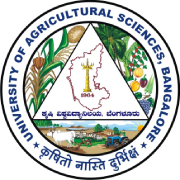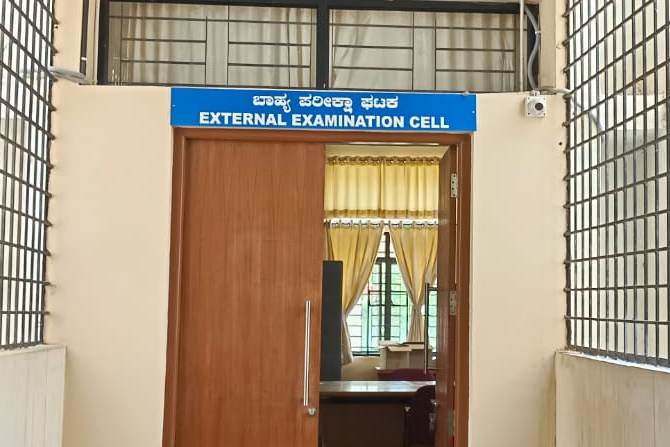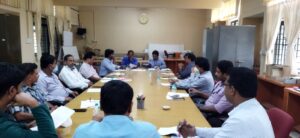Location
The College is located at Gandhi Krishi Vigyan Kendra Headquarters of UAS, Bangalore.
Historical Perspective
The college was started in the year 1946 and became a constituent college of UAS, Bangalore in 1964. This College is the torchbearer for all the teaching programmes under Faculty of Agriculture of UAS, Bangalore. The college started P.G programmes in 5 disciplines in 1966, which has presently grown to 23 Master’s and 13 Ph.D. Degree Programmes.
Mission
To be a premier college for teaching, research and extension programmes in agriculture that serves people in the State and the Country.
Goals
- To create an intellectually stimulating campus environment.
- To provide technological base and manpower for supporting agriculture and allied activities in the state.
- To plan and implement the strategies and programmes to achieve excellence in agricultural education, research and extension, reinforcing one another.
The faculty of the College includes meritorious and qualified team of teachers in different subject matter areas of agriculture and allied sciences. Many of them have been the recipients of national and International coveted awards for their outstanding achievements.
The students graduating from the college have made a mark both at national and International levels. Many of them have secured admissions in reputed International universities / institutes. The graduates of the college have been well placed in securing employment in various public sector institutions, in civil services and in reputed private sector organizations.
Board of Studies
The College of Agriculture has three Boards of Studies (BoS), one each for the Faculty of Agriculture, Faculty of Agribusiness Management, and Faculty of Food Science, Nutrition, and Dietetics for undergraduate degree programs.
External Examination Cell
Anti-Ragging Cell
The College constitutes Anti-ragging Committee every year and ensures that the ragging is totally curbed on the campus. The committee further constitutes anti-ragging squads to monitor and have vigilance in the campus both during working hours and till late in the night. As a result, the campus is known for effectively preventing ragging of newly admitted students and ensuring their safety.
The Anti-Ragging Vigilance Committee including various cadres of faculty is constituted every year to the prevention of ragging on campus. The following punishments have been framed if anyone is indulged in ragging:
- Cancellation of admission.
- Suspension from attending classes.
- Withholding/ withdrawing scholarship/ fellowship and other benefits.
- Debarring from appearing in any Test/ Examination or other evaluation.
- Withholding results.
- Debarring from representing the University in any National and International Meet, Tournament and Youth Festivals.
- Expulsion from the Hostels.
- Expulsion from the University for periods varying from 1 to 2 semester.
- Expulsion from the University and consequent debarring from admission to any institution.
- Fine up to Rs. 25,000/-
- Rigorous imprisonment up to three years.
Counseling
The teachers of the college are assigned to serve as counselors for all the students of the college. The counselors interact with the students periodically and review the students’ academic progress and facilitate them in resolving academic and other issues.
Counsellors for I B.Sc.(Hons) Agri.
Faculty Credentials
The faculty undergo regular training programs that are used for their teaching and research in their respective subjects. Many international conferences/seminars organized by the faculty are helping to provide opportunities to the students to get trained in different international organizations. The faculty are operating externally funded projects that have helped improve the University’s infrastructure facilities and thereby provide opportunities to students to get exposed to advanced tools and techniques
Learning Resources
Learning resources primarily are educational tools that facilitate the process of learning for both the teachers and the students. These tools provide the teachers with the opportunity of teaching effectively to enable an easier learning process to the students.
Instructional methods & aids used
The teaching-learning process is through conventional classrooms which are equipped with computers, projectors, wireless microphones, and speakers. This facility helps the teachers to teach the respective subject with the help of video clips and PowerPoint presentations. The other teaching methods include practical training in the laboratory, special lectures, seminars, home assignments, fieldwork, study tours, exposure visit, and demonstrations, using suitable software and multimedia.
E-notes
The e-notes for some of the prescribed courses both at the UG and PG levels have been prepared by the course teachers and have been uploaded to the University website and the same is available in the University library for the benefit of students. The schedule of lectures and a list of reference materials are distributed at the beginning of the course. Lecture outlines, synopsis, articles, and practical manuals are distributed in the classes as and when topics are covered.
Objectives of B.Sc. (Hons.) Agriculture Programme
- To make agricultural education responsive and qualitative to the growing and changing needs of the society in general and aspirations of the farming community in particular.
- To establish a dynamic system of agricultural education by generating high-quality graduates.
- To develop highly competent human resources to address the challenges in the newly emerging areas of agricultural research, extension and industry.
Deliverables
- Diagnose and manage common problems which are related to diverse fields of agriculture, of the farmer and the farming community.
- Practice preventive, promotive, and curative measures with respect to the commonly encountered problems/issues of agriculture faced by the farmers and agro-based industries.
- Appreciate the social, cultural, economic, and environmental factors associated with society and agroecosystem health and develop a compassionate attitude towards the farmers while discharging professional responsibilities.
- Familiarity with the various National and International Programs/policies related to farming/agriculture and animal husbandry, and how they are being implemented.
- Develop an attitude for self-learning and acquire necessary skills including the use of rapidly evolving technologies.
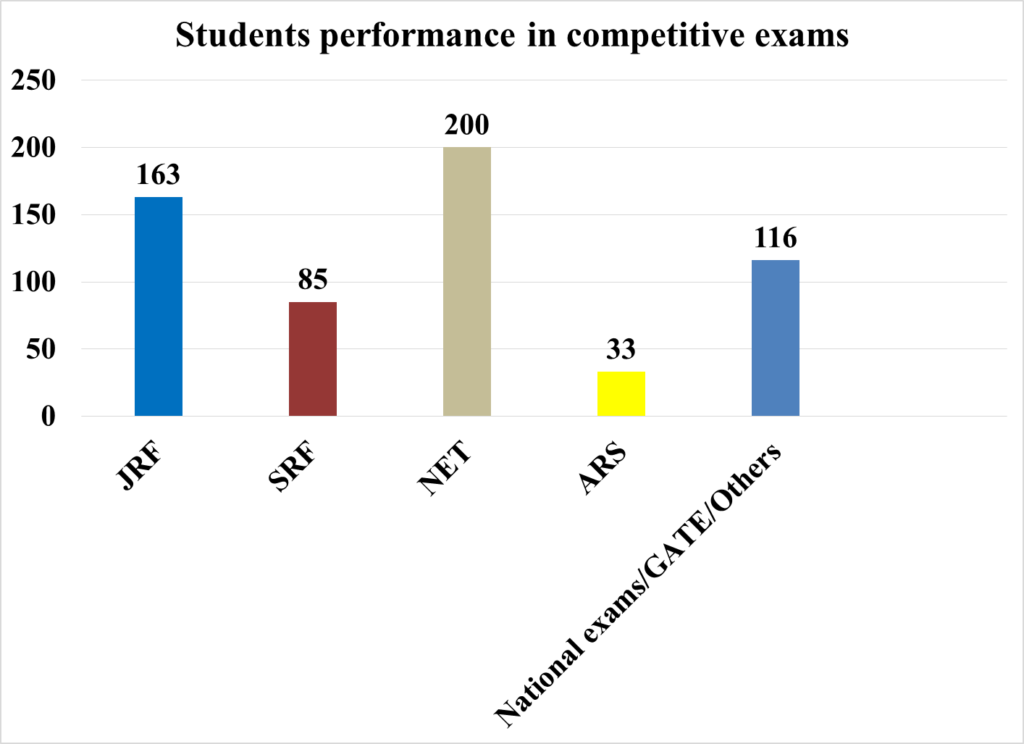
| Student performance | JRF | SRF | NET | ARS | National exams/GATE/Others | Total |
| No. of students | 163 | 85 | 200 | 33 | 116 | 597 |
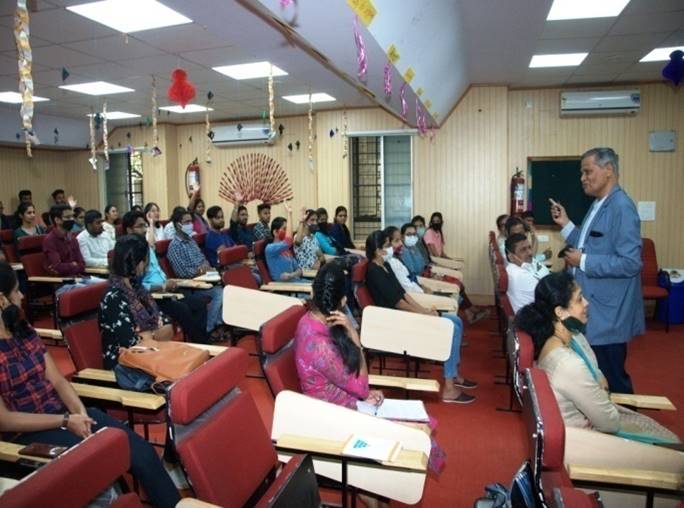
| Student performance | JRF | SRF | NET | ARS | National exams/GATE/Others | Total |
| No. of students | 163 | 85 | 200 | 33 | 116 | 597 |
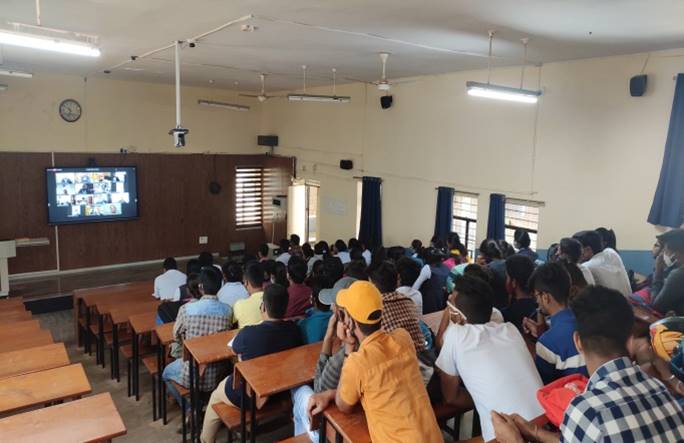
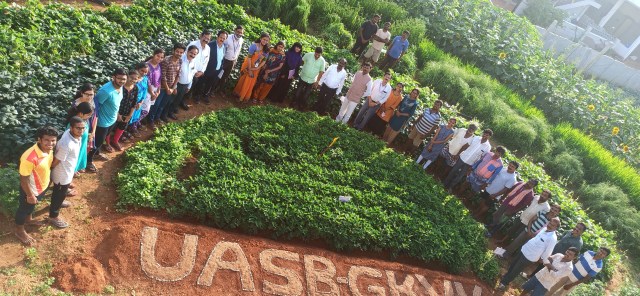
-
- Page Visitors Count:
- Last Updated: March 19, 2025
- Site Statistics
